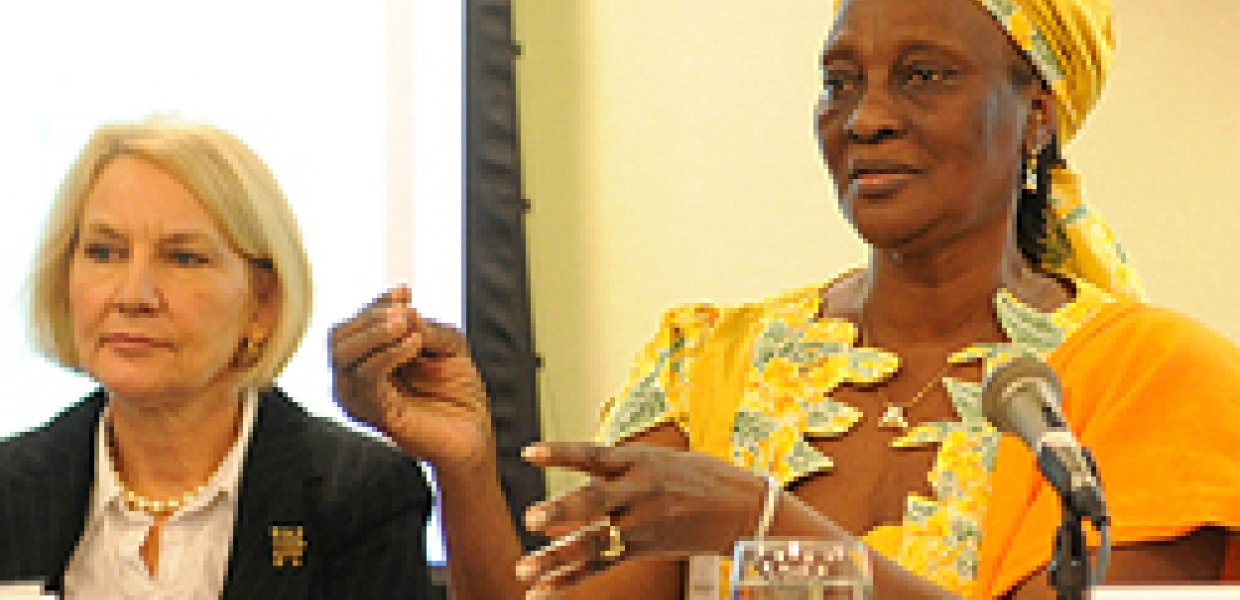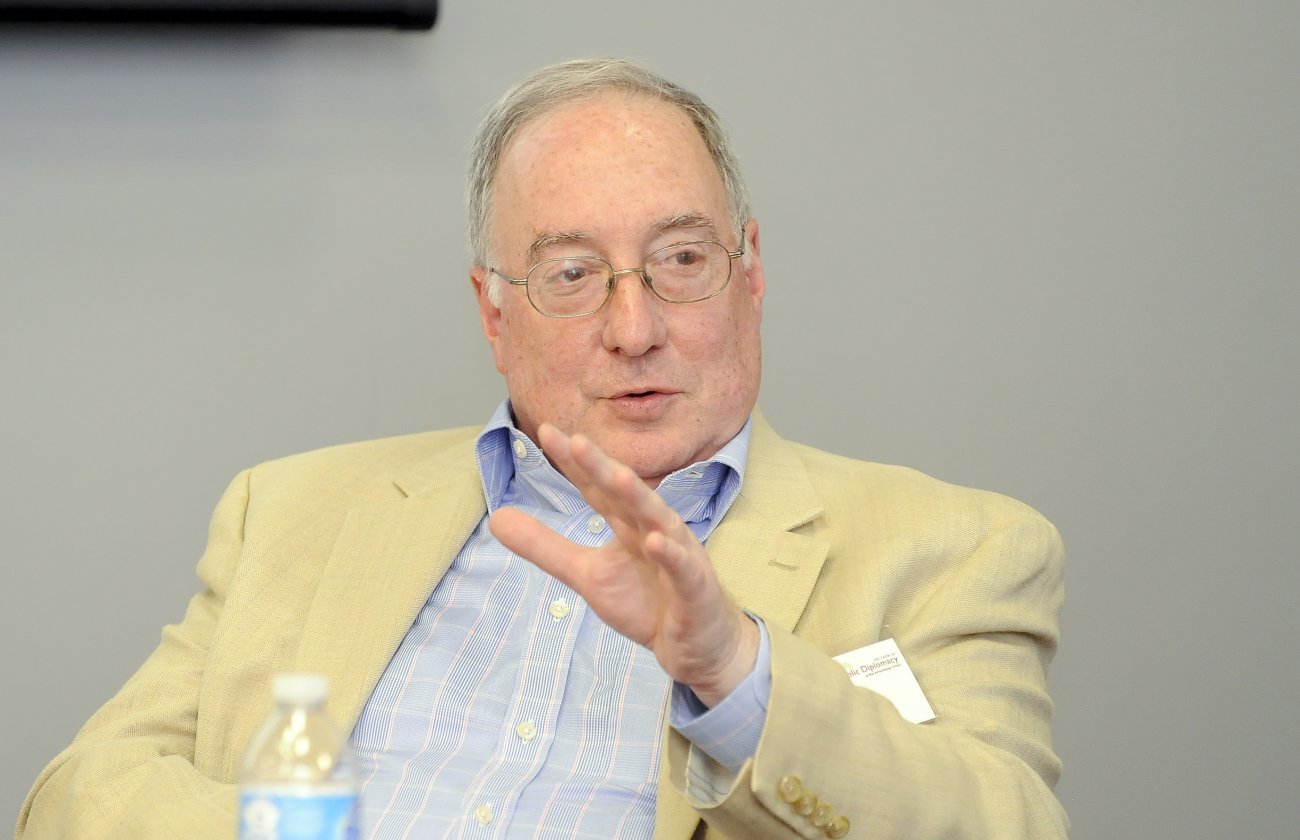 By Sherine Badawi Walton The USC Center on Public Diplomacy at the Annenberg School hosted “Water Diplomacy: A Foreign Policy Imperative,” a research conference on Feb. 27 which addressed three public diplomacy objectives in the area of water diplomacy: listening, implementation and policy development. The center is based at the USC Annenberg School for Communication and Journalism. Featuring water experts from the World Bank, Coca-Cola and the U.S. Army Corps of Engineers, as well as a number of scholars from universities in Mexico, the Netherlands, Nigeria and the United States, the conference provided a forum to engage in dialogue and provide recommendations for the future of water diplomacy. “Water vulnerability destroys individual lives and threatens peace among nations,” said CPD director Philip Seib in his introductory remarks. “Today we are primarily concerned with the former: not the diplomacy of treaties but rather the public diplomacy that reaches out to people and helps them better their lives. Such service, not advertising or branding, should be at the heart of public diplomacy.” In her keynote address, Jaehyang So, manager of the Water and Sanitation Program at the World Bank, stressed the need to provide the “right amount of water to the right people at the right time” and outlined the three chief tools utilized by the World Bank to that end: evidence-based knowledge, innovation and strategic partnerships. These tools were expanded upon by many of the speakers throughout the course of the day as they provided their unique perspective on the challenges of water diplomacy. Panels included “Listening: Water Diplomacy on the Ground,” in which participants discussed case studies from Mexico and Nigeria, as well as the Dutch government’s rationale for engaging in water diplomacy; “Implementation: Water Diplomacy in Practice,” which provided historical context and best practices from government and the corporate world; and “The Future of Water Diplomacy,” in which panelists presented policy recommendations. A lunchtime discussion with Gidon Bromberg, Israeli director of Friends of the Earth Middle East, showcased the successful Good Water Neighbors project in the Jordan River basin, which builds cross-border partnerships between Palestinian, Jordanian and Israeli communities that share a common water resource. The conference represents a part of CPD’s Water Diplomacy Initiative, which will continue with publications on water diplomacy, “CPD Conversations in Public Diplomacy” roundtables about water policy, a briefing on the topic in Washington, D.C., on April 16 and continuing research activity addressing a range of water diplomacy issues.
By Sherine Badawi Walton The USC Center on Public Diplomacy at the Annenberg School hosted “Water Diplomacy: A Foreign Policy Imperative,” a research conference on Feb. 27 which addressed three public diplomacy objectives in the area of water diplomacy: listening, implementation and policy development. The center is based at the USC Annenberg School for Communication and Journalism. Featuring water experts from the World Bank, Coca-Cola and the U.S. Army Corps of Engineers, as well as a number of scholars from universities in Mexico, the Netherlands, Nigeria and the United States, the conference provided a forum to engage in dialogue and provide recommendations for the future of water diplomacy. “Water vulnerability destroys individual lives and threatens peace among nations,” said CPD director Philip Seib in his introductory remarks. “Today we are primarily concerned with the former: not the diplomacy of treaties but rather the public diplomacy that reaches out to people and helps them better their lives. Such service, not advertising or branding, should be at the heart of public diplomacy.” In her keynote address, Jaehyang So, manager of the Water and Sanitation Program at the World Bank, stressed the need to provide the “right amount of water to the right people at the right time” and outlined the three chief tools utilized by the World Bank to that end: evidence-based knowledge, innovation and strategic partnerships. These tools were expanded upon by many of the speakers throughout the course of the day as they provided their unique perspective on the challenges of water diplomacy. Panels included “Listening: Water Diplomacy on the Ground,” in which participants discussed case studies from Mexico and Nigeria, as well as the Dutch government’s rationale for engaging in water diplomacy; “Implementation: Water Diplomacy in Practice,” which provided historical context and best practices from government and the corporate world; and “The Future of Water Diplomacy,” in which panelists presented policy recommendations. A lunchtime discussion with Gidon Bromberg, Israeli director of Friends of the Earth Middle East, showcased the successful Good Water Neighbors project in the Jordan River basin, which builds cross-border partnerships between Palestinian, Jordanian and Israeli communities that share a common water resource. The conference represents a part of CPD’s Water Diplomacy Initiative, which will continue with publications on water diplomacy, “CPD Conversations in Public Diplomacy” roundtables about water policy, a briefing on the topic in Washington, D.C., on April 16 and continuing research activity addressing a range of water diplomacy issues.
Center on Public Diplomacy takes a dip into water diplomacy
March 6, 2012
Updated May 3, 2023 11:41 a.m.







